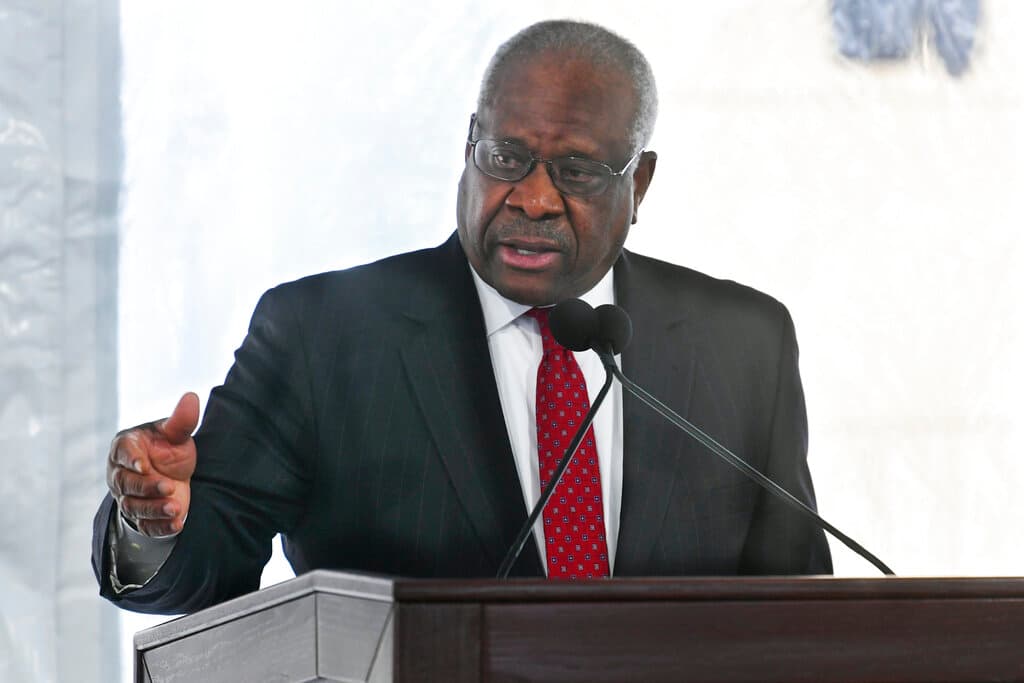The Real Monument to Justice Thomas
His longest-lasting monument will be hewn from constitutional argument and the imprint of his personal example.

The vote by the Georgia state Senate in favor of erecting a statue of Justice Clarence Thomas in his home state marks another flash point in the career of the Supreme Court’s senior jurist. The bill provides for the “placement of a monument in honor of the Honorable Clarence Thomas within the capitol building or grounds.” It will now move to the state House of Representatives for further discussion. We hope it passes.
Please check your email.
A verification code has been sent to
Didn't get a code? Click to resend.
To continue reading, please select:
Enter your email to read for FREE
Get 1 FREE article
Join the Sun for a PENNY A DAY
$0.01/day for 60 days
Cancel anytime
100% ad free experience
Unlimited article and commenting access
Full annual dues ($120) billed after 60 days

